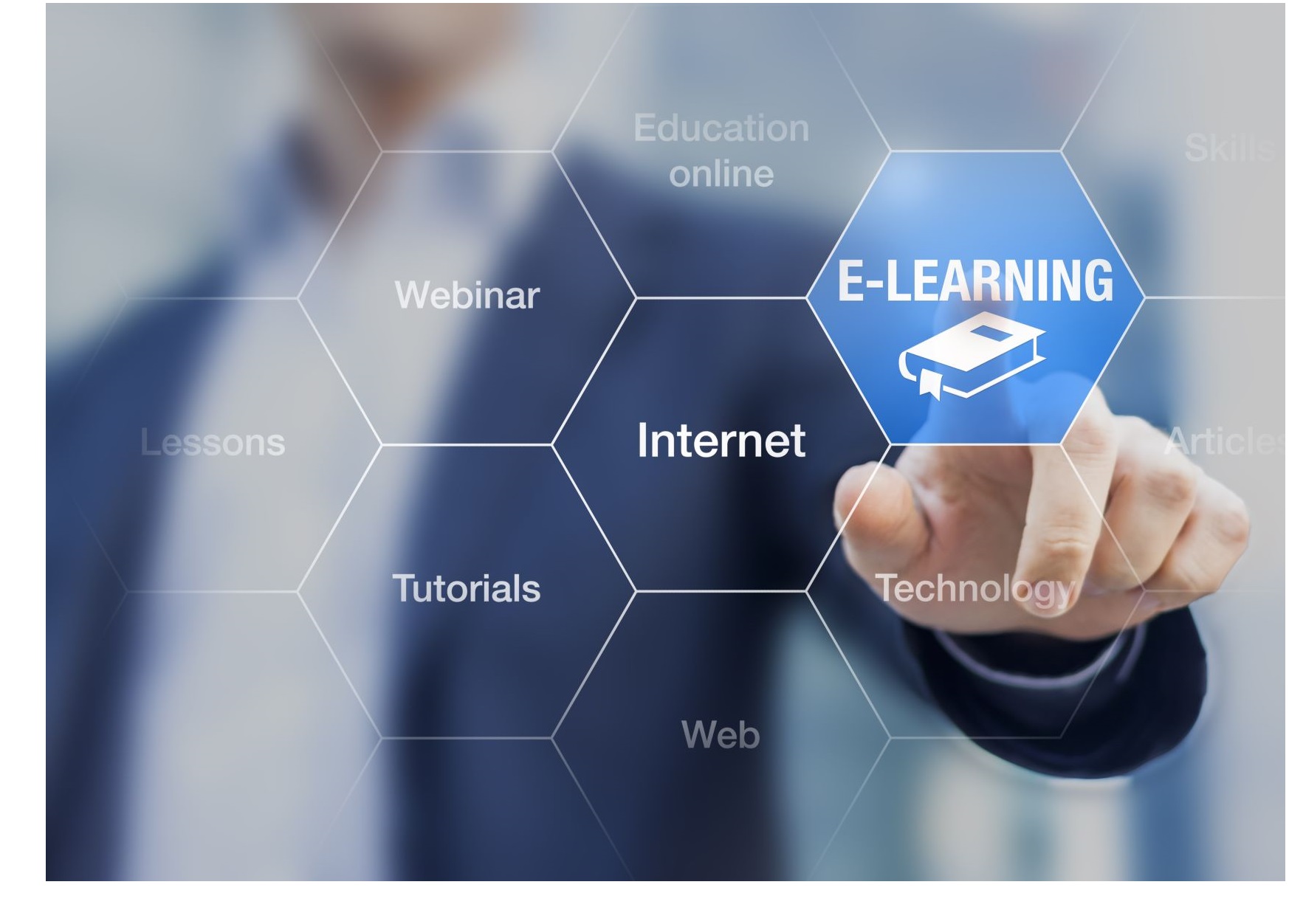E-Learning
 E-learning involves the use of a learning management system, which is an Internet-based computer program. This is necessary for the educational processes that are based on information and communication technologies in particular. Such systems also provide study materials and are a means of communication between students and/or higher education staff, for taking exams, consulting and monitoring student progress, etc. E-learning is carried out either synchronously or asynchronously (e.g. either in ‘live’ communication mode or not.
E-learning involves the use of a learning management system, which is an Internet-based computer program. This is necessary for the educational processes that are based on information and communication technologies in particular. Such systems also provide study materials and are a means of communication between students and/or higher education staff, for taking exams, consulting and monitoring student progress, etc. E-learning is carried out either synchronously or asynchronously (e.g. either in ‘live’ communication mode or not.
The TSU e-learning system uses the LMS e-learning management system and the Moodle platform.
Electronic teaching components had been introduced, however, to prevent the spread of the Covid-19 virus University administration has developed e-learning administrative guidelines. See LEPL- Ivane Javakhishvili Tbilisi State University approval for e-learning guidelines that detail the conditions for conducting e-learning. All seven faculties of the university have developed their e-learning programs based on these guidelines. These are more detailed and provide specific information for each faculty (see Resolution №31/2020 on approval of the rules for conducting distant e-learning within the educational programs of LEPL - Ivane Javakhishvili Tbilisi State).
The University Quality Assurance Service and the Department of Information Technology have developed guidelines, tutorials, and e-learning quality assurance recommendations. They have also conducted appropriate training. Due to the current global situation, special attention is being paid to e-learning. Recommendations for quality assurance were prepared and activities were implemented:
- In order to achieve the goals, set in the teaching-learning and educational programs and the corresponding learning outcomes, based on international experiences and guidance documents, including the guidelines for internal quality assurance of e-learning developed in 2018 by the European Association for Quality Assurance in Higher Education (ENQA), relevant recommendations have been developed, which are relevant for managing the learning process through electronic systems;
- An e-learning guide has been prepared which covers the important terms, concepts and methodology;
- Tutorials have been developed (both for students as well as the academic personnel) for selected learning platforms;
- Trainings have been scheduled and carried out (up to 30 trainings for about 650 academic personnel and 22 trainings were held for the students on 15 different topics, where 573 students took part) and individual consultations have been issued for academic personnel at both University and faculty level. Within the frames of the trainings following issues have been discussed by Georgian and international trainers: Development of learning outcomes for educational programs; E-learning; Creation of tests on Moodle platform; Methodology for test development;
- Modified learning support groups were set up at the faculties with the involvement of students and PhD students;
- The quality of the uploaded study materials was evaluated taking into consideration the specifics of the faculty;
- Recommended and guided materials for overcoming the crisis were developed and prepared: a) Rubrics; b) Assessment methods; c) Questionnaire (Poll) function in ZOOM meetings; d) Working group on the ZOOM electronic platform; e) Creation of tests on the Moodle platform (a guide for teachers); f) Creation of assignments on the Moodle platform (a guide for teachers); g) E-Learning - guide; h) Electronic voting instruction.
Quality enforcement agencies and the university have developed and published recommendations on e-learning, which can be found below:
- National Center for Educational Quality Enhancement (2020). Tips for ensuring the quality of e-learning for higher education institutions.
- ENQA recommendations for e-learning quality assurance.
- European Association for Quality Assurance in Higher Education (2018). Considerations for Quality Assurance of E-learning Provisions. 2018.
- The Quality Assurance Agency for Higher Education (2020). COVID-19: Initial Guidance for Higher Education Providers on Standards and Quality.

 FACULTY OF EXACT AND NATURAL SCIENCES
FACULTY OF EXACT AND NATURAL SCIENCES
 FACULTY OF HUMANITIES
FACULTY OF HUMANITIES
 FACULTY OF SOCIAL AND POLITICAL SCIENCES
FACULTY OF SOCIAL AND POLITICAL SCIENCES
 FACULTY OF PSYCHOLOGY AND EDUCATIONAL SCIENCES
FACULTY OF PSYCHOLOGY AND EDUCATIONAL SCIENCES
 FACULTY OF ECONOMICS AND BUSINESS
FACULTY OF ECONOMICS AND BUSINESS
 FACULTY OF MEDICINE
FACULTY OF MEDICINE
 FACULTY OF LAW
FACULTY OF LAW



